When it comes to ending a lease, both tenants and landlords often face misunderstandings and disputes, especially regarding the cleanliness of the rental property. Such disputes primarily revolve around the security deposit and the property’s condition at the time of moving out.
As a tenant, understanding your rights and responsibilities towards end-of-lease cleaning is crucial for a smooth transition and to prevent potential conflicts with your landlord. This knowledge not only helps in protecting your interests but also in fulfilling your obligations as stipulated by the lease agreement.
In this guide, we will explore the essential rights and duties every tenant should be aware of concerning end-of-lease cleaning.
Your Rights as a Tenant
Security Deposit Regulations
When renting a property, one of the most critical aspects to understand is the regulations surrounding security deposits. This financial safeguard is meant to cover potential damages or unpaid rent at the end of a lease. Landlords typically require tenants to pay a security deposit before moving in.
According to regulations, the landlord must lodge this deposit with the authorities, and the tenant should receive a receipt and confirmation. It is also crucial to note that the landlord can only ask for a bond equivalent to four weeks’ rent if the weekly rent is below a certain level. However, for higher rental fees, the amount should be negotiated between the tenant and the property manager.
Rent Adjustment Policies
Tenants must be cognizant of rent adjustment policies. During a lease agreement, landlords can only increase rent if there is a specific clause added at the beginning of the lease outlining this condition.
If permitted, the increase can occur once every six months but requires a two-month notice to be given to the tenant. This regulation ensures that tenants are prepared for any financial adjustments and can plan their budgets accordingly.
Privacy and Property Access
Privacy is a fundamental tenant right. The landlord or property manager must respect a tenant’s privacy throughout the lease period. It is usually regulated that landlords can conduct property inspections once every three months, but they must provide a seven-day notice before doing so.
In cases of urgent property matters requiring repairs, a 24-hour notice is mandatory. This protocol helps maintain the tenant’s comfort and privacy while ensuring the landlord can manage and maintain the property effectively.
Tenant Duties and Responsibilities
The Importance of End-of-Lease Cleaning
Approaching the end of a lease, tenants must undertake a thorough cleaning of the property. This end-of-lease cleaning is crucial to ensuring the return of the security deposit. It involves detailed cleaning tasks such as dusting off cobwebs, cleaning appliances, and ensuring all surfaces and floors are spotless.
Hiring professional cleaners can be a wise decision, as many companies guarantee the standards required to secure the deposit’s return. However, tenants have the right to choose whether to perform this cleaning themselves or employ professional services.
Property Maintenance Obligations
Maintaining the rented property is another significant duty of the tenant. This responsibility involves regular cleaning, ensuring no damages beyond normal wear and tear, and addressing any significant damages like broken windows or significant wall damage.
Tenants should not make alterations to the property without the landlord’s consent and should restore any modifications to their original state before moving out. Regular maintenance helps prevent disputes with the landlord and contributes to a smoother transition at the end of the lease.
Legal Requirements for Moving Out
When the lease concludes, tenants have specific legal obligations concerning their departure from the property. It is necessary to provide a notice period, typically two months, before moving out. If a tenant decides to leave before the lease termination, they are generally required to pay for the remaining months unless an agreement states otherwise.
Moreover, tenants are not allowed to stay in the property after the lease has ended without express permission from the landlord, which may involve renegotiating the lease terms or moving out by the agreed date.
Selecting the Right Cleaning Approach
While some tenants may opt for DIY cleaning, hiring a professional cleaning service can often be a more reliable and stress-free option.
Deciding whether to clean the property yourself or hire professional cleaners depends on several factors, including time, cleaning skills, and budget. Here are some considerations:
DIY Cleaning:
- Cost-Effective: Generally, DIY cleaning is less expensive as it only requires purchasing cleaning supplies.
- Time-Consuming: Thorough cleaning takes substantial time and effort, which can be a significant consideration if you have limited time or if the property is large.
- Quality: The level of cleanliness may not meet the property manager’s standards, especially for tough areas like ovens and bathrooms.
Professional Cleaners:
- Stress-Free: Professional cleaners take the hassle out of end-of-lease cleaning and typically guarantee their work, linking it directly to your bond deposit.
- Efficiency: Professionals have the tools and expertise to handle tough stains and hard-to-clean areas, ensuring a thorough clean in less time.
- Cost: While more expensive upfront, the potential to save time and secure your full deposit can outweigh the costs.
What to Look for in a Cleaning Service Provider?
Choosing the right cleaning service is key to ensuring a hassle-free end to your tenancy. Here are essential factors to consider when selecting a cleaning company:
- Reputation and Reviews: Check online reviews and testimonials to gauge the satisfaction of past clients. A reputable service provider will have positive feedback and a proven track record.
- Bond Back Guarantee: Opt for companies that offer a bond back guarantee, which provides an assurance linked to the cleaning service’s quality and its acceptance by landlords or property managers.
- Insurance and Accreditation: Ensure the cleaning service is insured and accredited. This protects you in case of damages during the cleaning process.
- Transparent Pricing and Inclusions: The company should provide a clear, comprehensive quote that outlines all costs and cleaning tasks included in the service. Beware of hidden fees.
- Flexibility and Availability: The cleaner should be able to accommodate your schedule and offer services within the required timeline to avoid any delays in returning the property.
Conclusion
The end of a lease term brings responsibilities and rights that every tenant must be aware of to ensure a smooth transition and avoid disputes, particularly concerning the security deposit. Familiarising yourself with both the tenant rights and duties will empower you to handle the end-of-lease process with confidence.
Key responsibilities during end-of-lease include ensuring the property is returned in a condition similar to when it was rented, barring normal wear and tear. This often involves thorough cleaning of the premises, either by the tenant or through hired professionals. Moreover, tenants must respect timelines for giving notices and abide by all terms laid out in the lease agreement to avoid financial penalties or legal issues.
In short, you should proactively engage with the lease terms, prioritise clear communication with the landlord, and respect property standards to mitigate conflicts and uphold their rental history.
If you are looking for expert end of lease cleaners, you can rely on OZ Cleaning Geelong – end of lease services as we have been the leaders of the cleaning industry for years. Our expert team will inspect your property and then provide you with a personalised cleaning package that suits your needs. Let’s discuss your project and our team will make your end of lease cleaning effortless!


